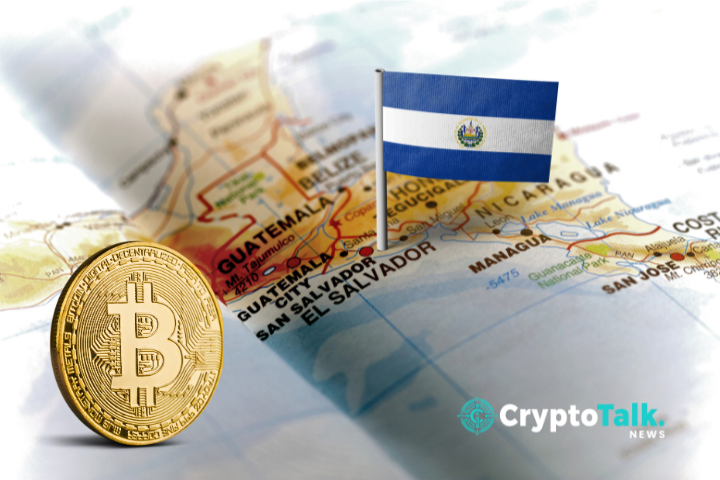As trust in traditional fiat currencies starts to wane, the concept of a Crypto Reserve Currency is increasingly gaining traction. Cryptocurrencies like Bitcoin and Ethereum are being discussed as potential replacements for established reserve currencies, such as the US Dollar. With features like decentralization, transparency, and security, crypto presents itself as a hedge against inflation—qualities that are often absent in conventional fiat systems.
What Makes Crypto a Contender?
Cryptocurrencies offer several compelling reasons for consideration as a reserve currency:
- Blockchain Technology: The foundation of crypto, blockchain technology ensures transparency. Every transaction is traceable, providing an open ledger for verification.
- Supply Control: Cryptocurrencies like Bitcoin have a capped supply of 21 million coins, which minimizes the risk of inflation. Unlike traditional fiat systems, where central banks can print more money, Bitcoin’s fixed supply ensures scarcity, potentially increasing its long-term value.
- Security: The blockchain’s immutable nature offers enhanced security, making it resistant to fraud or counterfeiting. This makes it a reliable digital asset in comparison to traditional currencies that may be subject to counterfeiting and manipulation.
Challenges to Reserve Status
Despite its attractive features, crypto faces significant challenges that could impede its path to becoming the world’s reserve currency:
- Volatility: One of the biggest obstacles to adoption is the high volatility of cryptocurrencies. Their values fluctuate wildly, which undermines their reliability as a stable store of value. This makes them less suitable for widespread use in daily transactions or as a benchmark for pricing goods and services.
- Regulatory Uncertainty: Cryptocurrencies currently lack clear and consistent global regulations. This creates uncertainty in their use, especially for central banks and governments, which need assurance about their legitimacy, security, and potential for economic stability.
- Infrastructure Limitations: Current blockchain technology has limitations in terms of scalability and transaction speed. For crypto to be adopted as a global reserve currency, it must be able to handle the massive transaction volumes required by the global financial system.
Global Experimentation with Crypto
Several countries have begun experimenting with cryptocurrencies, testing their viability for reshaping the financial landscape:

El Salvador:
In 2021, El Salvador made history by becoming the first nation to adopt Bitcoin as legal tender. The government introduced a law making Bitcoin officially recognized alongside the US Dollar, which had been El Salvador’s primary currency since 2001.
Goals:
- Reduce reliance on the US Dollar: By adopting Bitcoin, El Salvador aims to gain greater financial autonomy and reduce its dependence on the dollar.
- Financial Inclusion: With over 70% of the population being unbanked, Bitcoin adoption provides a way for many Salvadorans to access financial services.
- Attract Foreign Investment: The government hopes Bitcoin adoption will stimulate investments, particularly in the tech and cryptocurrency sectors.
Challenges: Despite enthusiasm from President Nayib Bukele, the Bitcoin law has faced criticism due to Bitcoin’s volatility, and international bodies like the World Bank and the IMF have expressed concerns about the economic risks involved.

Russia:
Russia is exploring the use of digital assets in international trade to reduce its dependence on traditional fiat currencies, particularly in light of Western sanctions.
Goals:
- Circumvent Sanctions: Russia has been heavily impacted by Western sanctions, and cryptocurrencies provide a way to bypass restrictions and engage in trade without reliance on the US Dollar.
- Digital Ruble: Russia is piloting a Central Bank Digital Currency (CBDC), the digital ruble, as an alternative to decentralized cryptocurrencies. The digital ruble could potentially support both domestic and international trade.
Challenges: Russia’s stance on crypto mining has been inconsistent, with mixed regulatory approaches. Moreover, international resistance to using cryptocurrencies for trade may limit their success.

China:
While not directly referenced, China plays a significant role in the global cryptocurrency landscape through the development of the Digital Yuan—its government-controlled digital currency.
Goals:
- Enhance Monetary Policy: The Digital Yuan (e-CNY) aims to provide the Chinese government with greater control over monetary policy, facilitate transactions, and reduce reliance on the US Dollar.
- Strengthen Global Economic Influence: By promoting the Digital Yuan, China seeks to increase its influence in international trade and finance.
Challenges: There are concerns over privacy and security risks with the Digital Yuan, as well as questions about the concentration of control over digital finance in the hands of the Chinese government.
What Needs to Change for Crypto to Achieve Reserve Currency Status?
For cryptocurrencies to achieve the status of a global reserve currency, several key changes are necessary in regulatory frameworks, infrastructure, and adoption.
Regulatory Clarity
One of the most significant hurdles is regulatory uncertainty. Governments need to develop a set of global regulatory standards for cryptocurrencies to ensure consistency, security, and trust.
What Needs to Change:
- Global Regulatory Frameworks: Countries must collaborate to create universal regulations for cryptocurrencies, addressing issues like exchange operation, taxation, anti-money laundering (AML), know-your-customer (KYC) compliance, and consumer protection.
- Central Bank Integration: Central banks need clear guidelines for incorporating cryptocurrencies into the global financial system, potentially integrating them into monetary policy.
Challenges: The lack of a unified regulatory stance across countries complicates the development of global standards. Concerns over illicit activities like money laundering may prevent some governments from fully embracing crypto.
Infrastructure Development
For cryptocurrencies to become scalable and secure, the underlying blockchain technology must improve to support global financial systems.
What Needs to Change:
- Scalability and Speed: Existing networks like Bitcoin and Ethereum face scalability issues. Layer 2 solutions such as Lightning Network for Bitcoin must be further refined to handle global transaction volumes.
- Security and Reliability: As crypto adoption grows, ensuring the security of networks becomes increasingly important to prevent hacking and theft.
Challenges: Environmental concerns about the energy consumption of certain cryptocurrencies, like Bitcoin, also present a challenge to their long-term sustainability.
Widespread Adoption
For a cryptocurrency to become a reserve currency, it must be adopted by central banks and consumers alike. This includes integrating crypto into monetary policies and enabling everyday transactions.
What Needs to Change:
- Trust: Cryptocurrency needs to be seen as a reliable and stable store of value. Reducing volatility and increasing market confidence will be key to this.
- Acceptance in Global Trade: Crypto must gain widespread acceptance from international businesses and governments for use in cross-border payments.
Challenges: Crypto’s volatility remains a significant obstacle, making it difficult to gain the trust required for widespread use. Global coordination between nations is also a challenge, especially given the differing economic priorities.
The Future of a Crypto Reserve Currency
While the path to a crypto-based reserve currency is fraught with challenges, the very discussion surrounding it signals a growing role of crypto in shaping the global economy. With the right infrastructure improvements, regulatory clarity, and widespread adoption, cryptocurrencies could redefine the future of finance, offering a decentralized alternative to traditional currencies.
However, the question remains: Can cryptocurrencies stabilize, scale, and gain the trust necessary to become the world’s reserve currency? Only time will tell, but the ongoing developments in crypto adoption and regulation will certainly shape the future of global finance.
Disclosure: The views and opinions expressed here belong solely to the author and do not represent the views and opinions of cryptotalk.news’ editorial.
Author
-
Asif Hassan is a skilled Crypto Content Writer and Business Growth Expert, specializing in creating engaging content and driving brand growth in the cryptocurrency space. He combines expertise in content marketing and strategy to help businesses thrive in the digital era.
View all posts


























